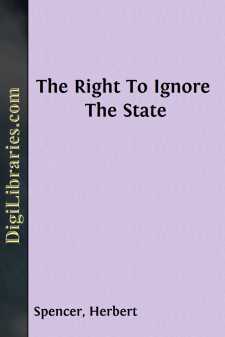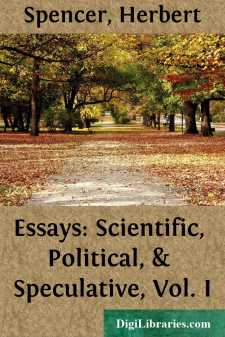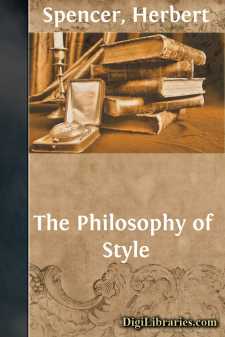Categories
- Antiques & Collectibles 13
- Architecture 36
- Art 48
- Bibles 22
- Biography & Autobiography 813
- Body, Mind & Spirit 142
- Business & Economics 28
- Children's Books 15
- Children's Fiction 12
- Computers 4
- Cooking 94
- Crafts & Hobbies 4
- Drama 346
- Education 46
- Family & Relationships 57
- Fiction 11828
- Games 19
- Gardening 17
- Health & Fitness 34
- History 1377
- House & Home 1
- Humor 147
- Juvenile Fiction 1873
- Juvenile Nonfiction 202
- Language Arts & Disciplines 88
- Law 16
- Literary Collections 686
- Literary Criticism 179
- Mathematics 13
- Medical 41
- Music 40
- Nature 179
- Non-Classifiable 1768
- Performing Arts 7
- Periodicals 1453
- Philosophy 64
- Photography 2
- Poetry 896
- Political Science 203
- Psychology 42
- Reference 154
- Religion 513
- Science 126
- Self-Help 84
- Social Science 81
- Sports & Recreation 34
- Study Aids 3
- Technology & Engineering 59
- Transportation 23
- Travel 463
- True Crime 29
Herbert Spencer
Herbert Spencer (1820–1903) was an English philosopher, sociologist, and prominent figure in the development of evolutionary theory. He is best known for coining the term "survival of the fittest" and applying evolutionary principles to a wide range of disciplines, including ethics, psychology, and politics. His major works include "The Principles of Sociology" and "The Synthetic Philosophy," where he explored the application of natural laws to human society. Spencer's ideas significantly influenced 19th-century thought, though his views on social Darwinism later sparked controversy.
Author's Books:
Sort by:
by:
Herbert Spencer
The Right to Ignore the State. § 1. As a corollary to the proposition that all institutions must be subordinated to the law of equal freedom, we cannot choose but admit the right of the citizen to adopt a condition of voluntary outlawry. If every man has freedom to do all that he wills, provided he infringes not the equal freedom of any other man, then he is free to drop connection with the...
more...
by:
Herbert Spencer
THE DEVELOPMENT HYPOTHESIS. [Originally published in The Leader, for March 20, 1852. Brief though it is, I place this essay before the rest, partly because with the exception of a similarly-brief essay on "Use and Beauty", it came first in order of time, but chiefly because it came first in order of thought, and struck the keynote of all that was to follow.] In a debate upon the development...
more...
by:
Herbert Spencer
i. The Principle of Economy. § 1. Commenting on the seeming incongruity between his father's argumentative powers and his ignorance of formal logic, Tristram Shandy says:—"It was a matter of just wonder with my worthy tutor, and two or three fellows of that learned society, that a man who knew not so much as the names of his tools, should be able to work after that fashion with them."...
more...




